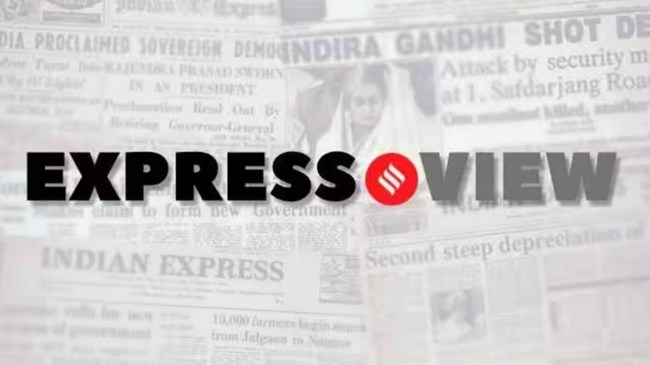Opinion In Bihar’s civil services exam, a tale of the young and the hopeless
The BPSC examination row points to a systemic distortion and lack of accountability that is taking a high toll across states
 The voices of the students in Bihar, and other states, must be heard and heeded. In a country of the young, one that is on the move, much is at stake.
The voices of the students in Bihar, and other states, must be heard and heeded. In a country of the young, one that is on the move, much is at stake. In the run-up to the 2024 Lok Sabha election, countering the Opposition parties’ pitch on the caste census, Prime Minister Narendra Modi had said that, for him, there are only four castes: Poor, farmers, women — and youth. The emphasis on youth, an underlining of their issues and concerns, could also be found in the manifestos of parties and leaders’ speeches. However, in 2024, like many years before it, across states, the young were let down by leaders and parties who turned an unseeing eye to a recurring pattern — paper leaks and allegations of cheating and foul play leading to exam cancellations and students’ protests, to no avail. The controversy over the Bihar Public Service Commission (BPSC) preliminary examination held on December 13 is only the latest in a dismal series.
One of the centres in Patna saw a disruption — it was alleged that the question paper had been leaked. Soon after, reports of irregularities poured in from other centres, sparking students’ protests. On December 19, the Commission decided to conduct a re-examination only for one centre. As the protests intensified, leaders like Prashant Kishor, founder of the state’s fledgling Jan Suraaj Party, along with several educators, put their weight behind the students’ demands; RJD’s Tejashwi Yadav asked the Commission to conduct fresh prelims across the state. The BPSC controversy, however, is just one more in a long list of such irregularities. The year 2024 saw the NEET-UG fracas, followed by the cancellation of the NET and NEET-PG exams. Exams conducted for state government recruitments in UP, Rajasthan, Maharashtra, and Tamil Nadu faced similar controversies. The Centre introduced the Public Examinations (Prevention of Unfair Means) Act (2024) to lay down guardrails.
But is it enough to pass a law? Ever since the uproar over the Vyapam scam in Madhya Pradesh in 2013 — its ghosts are still to be laid to rest — few political parties have made it a political or electoral issue. For the aspirants, many of whom belong to marginalised castes and classes, these exams are a way to achieve social mobility, against daunting odds. In a country of large economic disparities, and when job creation is not picking up in the private sector, they represent a possibility of empowerment for millions. Crammed into general compartments of trains and in overcrowded buses, they reach the exam centres armed only with their aspiration — between 2014 and 2022, for instance, only 0.33 per cent of the applicants got government jobs. The voices of the students in Bihar, and other states, must be heard and heeded. In a country of the young, one that is on the move, much is at stake.




